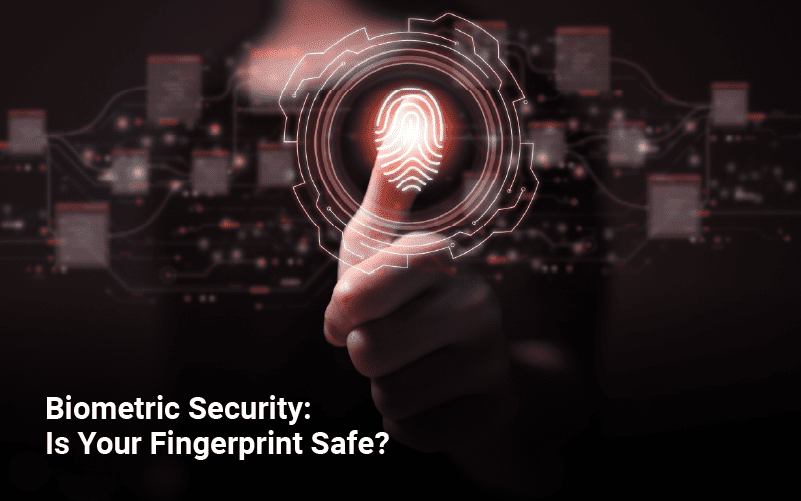Why Being a Veteran Is a Benefit in the Cybersecurity Industry
Any veteran knows that the shift from military to civilian life can be challenging, but leveraging the skills you’ve gained in your military career can ensure a smooth job transition. If you’re contemplating your next steps after completing your military service, cybersecurity may be the perfect fit for you.
Cybersecurity is one of today’s most in-demand careers. As of May 2021, there were around 465,000 unfilled cybersecurity positions in the United States alone (Brooks, 2021). The cybersecurity market is only expected to grow in the coming years, with 3.5 million job openings expected globally by 2025 (Cybersecurity Ventures, 2021).
To close this skills gap, companies are offering high compensation. Average salaries for cybersecurity occupations like application security engineer and ethical hacker are more than $100,000 (Salary.com, 2022a, 2022b)—more than double the U.S. median earnings in 2020 (Shrider et al., 2021). In this article, we’ll explain how being a veteran can benefit your career in cybersecurity.
Why Is Cybersecurity a Perfect Match for Veterans?
Cybersecurity professionals protect computers, networks, digital assets, and information against unauthorized access. In a broad sense, any device connected to the internet could be exposed to a cyberattack and therefore needs to be protected. As a veteran, pursuing a career in cybersecurity lets you continue your mission of protecting citizens and defending your country on the digital battlefield.
Some of the same abilities you acquired in your military service can be utilized in your work as a cybersecurity professional. Many of the skills necessary for national defense are also important in cybersecurity, such as situational awareness, willingness to learn on the job, ability to quickly process information, and alertness and quick reaction time. As a result, veterans often have a leg up on other applicants for civilian cybersecurity positions, thanks to prior training in security procedures and experience handling time-sensitive challenges.
What Makes Veterans Appealing Candidates for Cybersecurity Jobs?
The professional qualities and expertise that veterans develop while serving their country can also be applied in the civilian workforce. Here’s a quick rundown of the attributes that make former servicemembers so desirable in the cybersecurity industry:
- Experience working in high-stress environments
- Leadership skills and experience
- Problem-solving abilities
- Disciplined attitude
- Ability to obtain and maintain a security clearance
- Experience handling time-constrained assignments
- Understanding of the significance of defense and protection
- Ability to communicate quickly and efficiently
- Loyal, dedicated, and self-driven attitude
Many multinational companies are looking for talented veterans to fill cybersecurity positions, and some are partnering with military advocacy organizations to hire veterans immediately after they complete their service.
How to Transition into Cybersecurity
1. Assess Your Skills and Plan Your Career Path
First, familiarize yourself with the various jobs available in the cybersecurity industry, such as ethical hacker, penetration tester, digital forensic investigator, application security engineer, and threat intelligence analyst. You can then determine which role is the best fit for you by assessing your interests and skills and comparing them with the requirements of each position.
It’s a great idea to seek out a career path that is already well aligned with your experience and talents. For example, if you worked as a software engineer in the Air Force, you could consider utilizing your software development skills as an application security engineer in the private sector.
2. Understand the Importance of Your Security Clearance
If you currently hold a security clearance, you’re already well on your way to being eligible for a job with the federal government. Even if (like many cybersecurity professionals) you’re employed by a private company, these organizations often contract with the federal government, making a security clearance a highly desirable asset for job applicants.
According to the National Background Investigations Bureau, which tracks clearance processing times for Department of Defense contractors, it took an average of 112 days to process a Secret clearance and nearly 6 months to process a Top Secret clearance in the fourth quarter of 2021 (Kyzer, 2021). In addition to these lengthy waiting periods, the hiring company usually has to bear the cost of obtaining a clearance. Processing a Secret clearance can cost anywhere from a few hundred to $3,000 per employee, with Top Secret clearances running as much as $15,000 (TAOnline, 2021). If you already have a security clearance, you can get started in a new role faster and your new employer can avoid these expenses, making you a more appealing job candidate.
3. Find a Mentor and Research Potential Employers
It’s always a good idea to seek a mentor’s advice when you’re about to embark on a new career—when you don’t know which road to choose, you’re much more likely to get lost. Reach out to contacts in your network who can guide you in transitioning to a civilian career and entering the cybersecurity field.
You can take advantage of online job listings to do your homework before applying for jobs. Research what employers are currently looking for in terms of skills, experience, education, and certifications to see whether your qualifications meet these requirements. Online job portals are a great source for finding opportunities in the cybersecurity job market and exploring typical salaries for the positions you’re interested in.
4. Pursue a Specialized Cybersecurity Education
An industry-recognized education can give you an advantage when entering the cybersecurity sector. According to a recent report, 88% of cybersecurity job postings require a bachelor’s degree or higher (Burning Glass Technologies, 2019), and obtaining industry-recognized certifications can result in salary increases of more than $16,000 (Owaida, 2019).
EC-Council University (ECCU) is a leading provider of cybersecurity education. ECCU offers a Bachelor of Science in Cybersecurity (BSCS) and a Master of Science in Cybersecurity (MSCS), both fully online. The BSCS program teaches fundamental skills in cybersecurity and prepares students to attain three of EC-Council’s leading certifications: Certified Network Defender (C|ND), Certified Ethical Hacker (C|EH), and Computer Hacking Forensic Investigator (C|HFI).
If you’ve completed the BSCS or already have a bachelor’s degree, consider enrolling in the MSCS program. ECCU offers five master’s-level specializations to further hone your skills based on your interests and background: Security Analyst, Cloud Security Architect, Digital Forensics, Incident Management and Business Continuity, and Executive Leadership in Information Assurance.
EC-Council University’s Commitment to Veterans
At ECCU, we recognize the challenges veterans face when integrating into civilian life, and we’re dedicated to helping former servicemembers achieve fulfilling careers in cybersecurity. If you are a veteran, ECCU will waive your application fee as a token of our respect for your military service. For more details about our exclusive zero-cost application offer, visit https://www.eccu.edu/welcome-veterans/
ECCU also offers the Cybersecurity Hero’s Scholarship to U.S. military veterans, first responders, and their families to recognize their service to community and country. The award covers 10% of selected applicants’ tuition. More details about the Hero’s Scholarship can be found here: https://www.eccu.edu/wp-content/uploads/2018/10/Cyber-Security-Heros-Scholarship.pdf
Found this article interesting? Follow EC-Council University on Facebook, Twitter, Instagram and LinkedIn to read more exclusive content.
References
Brooks, K. (2021, May 21). U.S. has almost 500,000 job openings in cybersecurity. CBS News. https://www.cbsnews.com/news/cybersecurity-job-openings-united-states/
Burning Glass Technologies. (2019). Recruiting watchers for the virtual walls: The state of cybersecurity hiring. https://www.burning-glass.com/wp-content/uploads/recruiting_watchers_cybersecurity_hiring.pdf
Kyzer, L. (2021, October 25). How long does it take to process a clearance? Q4 2021. Clearance Jobs. https://news.clearancejobs.com/2021/10/25/how-long-does-it-take-to-process-a-clearance-q4-2021/
Owaida, A. (2019, November 20). What does it take to attract top cybersecurity talent? We Live Security. https://www.welivesecurity.com/2019/11/20/what-it-takes-to-attract-top-cybersecurity-talent/
Salary.com. (2022a, January 27). Application security engineer. Retrieved February 22, 2022, from https://www.salary.com/tools/salary-calculator/application-security-engineer
Salary.com. (2022b, January 27). Ethical hacker. Retrieved February 22, 2022, from https://www.salary.com/tools/salary-calculator/ethical-hacker
Shrider, E. A., Kollar, M., Chen, F., & Semega, J. (2021). Income and poverty in the United States: 2020 (Report No. P60-273). U.S. Census Bureau. https://www.census.gov/library/publications/2021/demo/p60-273.html
TAOnline. (2021). Security clearances. TAOnline.com: Careers for the Transitioning Military. https://veteranresources.taonline.com/Security-Clearances/veteran-military-Hiring-Cleared-People








